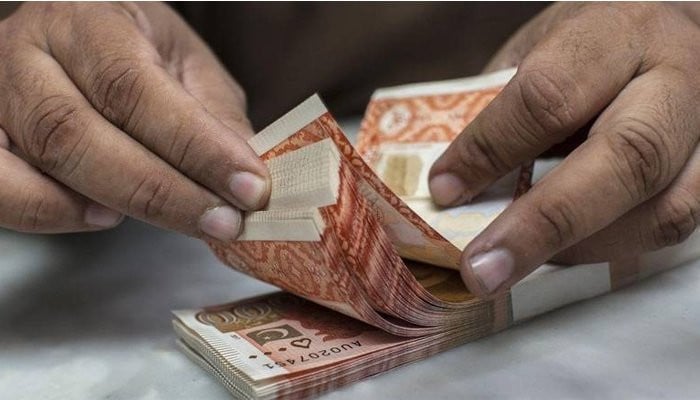The perception of Pakistan’s risk of default has worsened with the five-year credit default swap (CDS) surging by 30 percentage points in a week to 93% on Monday ahead of the repayment of $1 billion for a maturing international bond early next month.
According to a research house, the CDS had been at 4.2% in January 2021.
Finance Minister Ishaq Dar and many financial experts have reiterated that Pakistan will not default on any of the international payments and that volatility in the CDS had nothing to do with the country’s default risk.
However, a section of global and local experts and bond investors saw the rise in the CDS as a threat to their receivables.
Yields (rate of return) on the $1 billion international bond (Sukuk), which is maturing on December 5, 2022, soared to 120% on Monday from around 96% on Friday, indicating the investors’ lack of confidence in Pakistan whether it would be able to repay the maturing debt.
The yield was hovering at less than 10% before the Covid-19 outbreak in February 2020 in Pakistan, when the investors had high confidence in Pakistan’s capacity to repay them.
Yields on the other two bonds worth a total of $2 billion maturing in 2024 and 2025 also increased during the day.
The developments came amid a delay in the ninth review of Pakistan’s economy by the International Monetary Fund (IMF), which partly blocked the foreign currency flows into the country.
Accordingly, the foreign exchange reserves depleted to a critically low level of $8 billion against over $20 billion in August 2021, weakening the country’s capacity to make international payments.
Arif Habib Limited Head of Research Tahir Abbas said that the “CDS is a premium that investors pay to insure their investment in bonds against the risk of default”. “This, however, should not be taken as an indicator of the risk of default.”
He hoped that Pakistan would receive billions of dollars in loans from the multilateral and bilateral creditors in December 2022. “Pakistan is expected to receive $6 billion to $8 billion from the IMF, World Bank, Asian Development Bank (ADB), Saudi Arabia and in flood relief,” he said.
“Yes, some of the loans are attached with the clearance of IMF’s ninth review,” he said, adding that political uncertainty had added to the volatility. However, things would get normalised soon.
Rupee slides
The slow inflow of foreign loans compared to the estimates during July-October 2022 mounted pressure on the rupee against the
US dollar.
The domestic currency maintained its downtick for the sixth successive working day, falling by 0.22% (or Rs0.49) to a new six-week low at Rs223.66 against the greenback in the inter-bank market on Monday.
Pakistan could receive only $4.2 billion in new loans in the first four months of current fiscal year compared to estimates of around $7 billion, said Abbas.
The pressure on the rupee would go away with the receipt of new loans. The currency would stay around current levels in the short run, he said.

